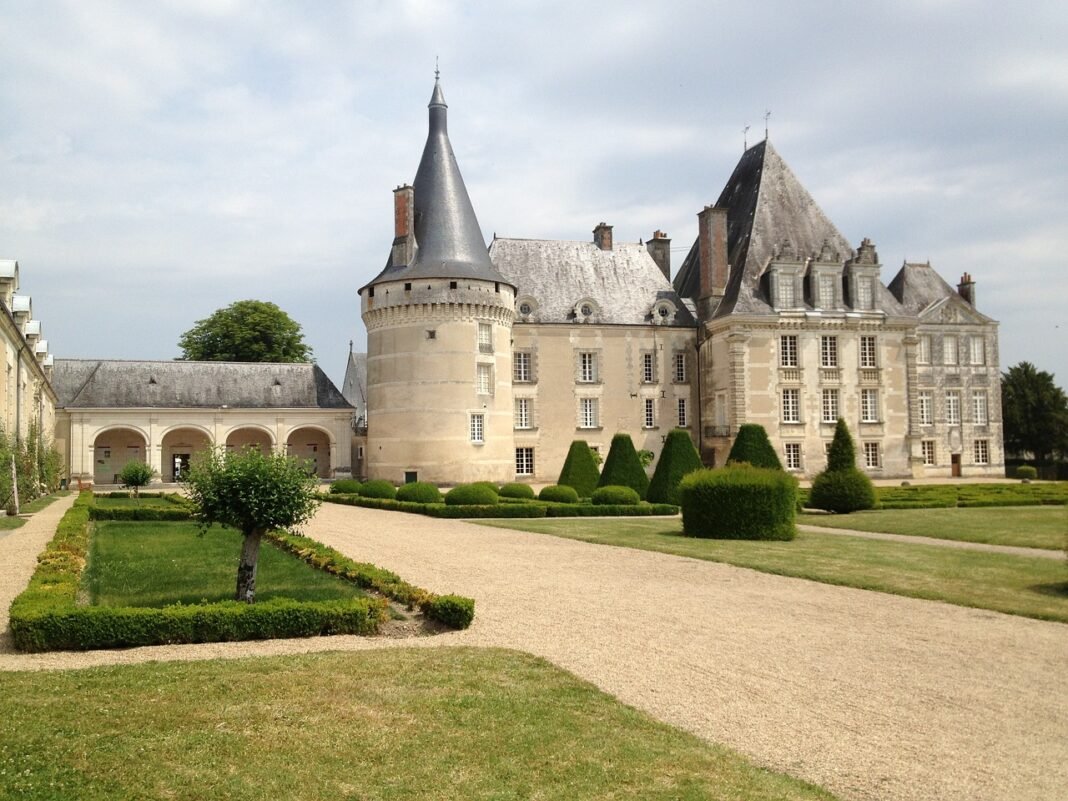Top Sites to Discover European Castles for Sale
Have you ever dreamed of owning a European castle? From the rolling hills of France to the misty landscapes of Scotland, Europe’s rich history is reflected in its magnificent castles. While it may seem like a distant fantasy, buying a castle is more accessible than you might think. Thanks to modern real estate platforms, you can now easily browse castles for sale right from your home. Whether you’re looking for a charming chateau, a grand fortress, or a cozy manor house, there are plenty of options available.
In this article, we’ll explore the top 10 websites where you can find European castles for sale. These platforms offer a wide range of historic properties, making it easy for you to find your dream castle, whether you’re a first-time buyer or an experienced investor in luxury estates.

1. Christie’s International Real Estate
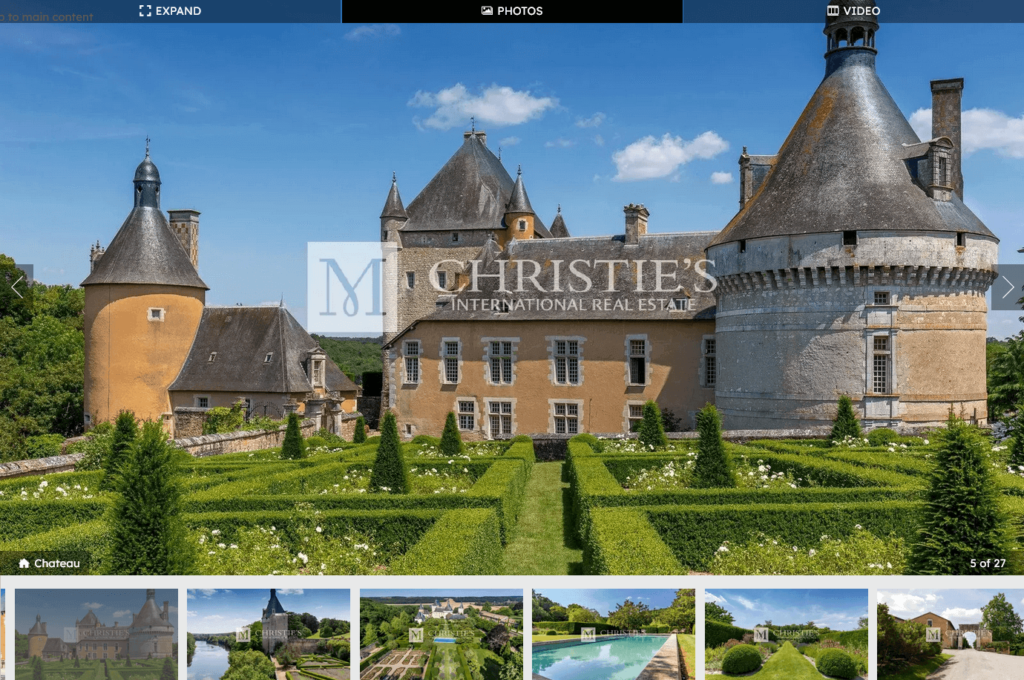
Visit website: Christie’s International Real Estate
Christie’s is a name that’s long been associated with luxury and high-end properties, including castles. They specialize in showcasing premium homes from all around the world, with a strong focus on Europe.
- What makes it great? Christie’s provides a well-curated selection of European castles for sale, typically offering properties in countries like France, Italy, and Scotland. The listings are detailed, providing a clear idea of the estate’s history, architecture, and features. Plus, with Christie’s established reputation, buyers can trust they are dealing with a reliable and respected name.
- Countries covered: France, Scotland, Italy, Spain, and more.
- Best for: Those looking for prestigious, high-end properties with a rich history.
2. Sotheby’s International Realty
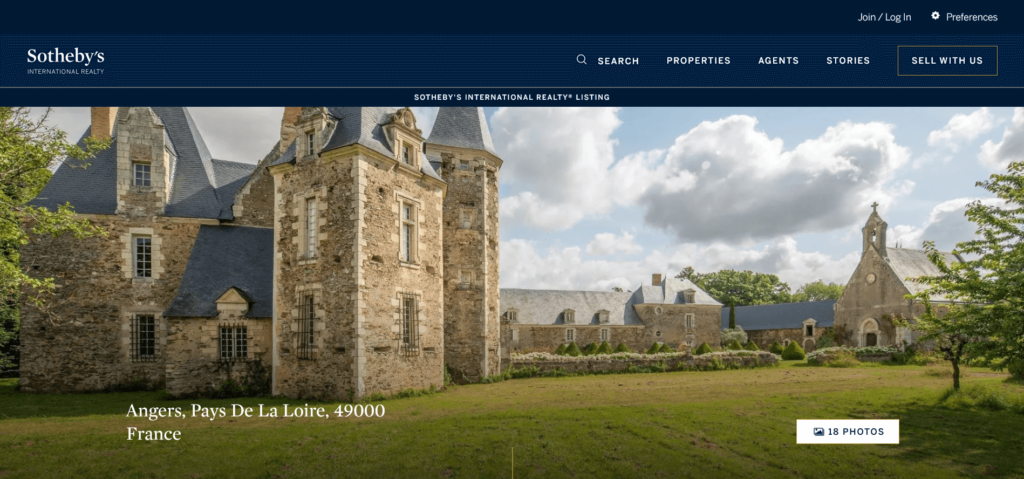
Visit website: Sotheby’s International Realty
Sotheby’s, another prestigious real estate company, offers a large selection of luxury properties. They are well-known for their historic estates, including European castles. Sotheby’s listings often feature some of the most stunning and exclusive castles for sale on the market.
- What makes it great? The properties are thoroughly vetted, and the website offers plenty of filters to help narrow down your search. From rural estates in the French countryside to medieval castles in the Scottish Highlands, Sotheby’s offers a wide range of options. The site is easy to navigate and provides in-depth descriptions, high-quality photos, and sometimes virtual tours.
- Countries covered: France, Italy, Spain, Portugal, Scotland, Germany, and others.
- Best for: High-end buyers looking for rare and exclusive properties.
3. Le Figaro Properties
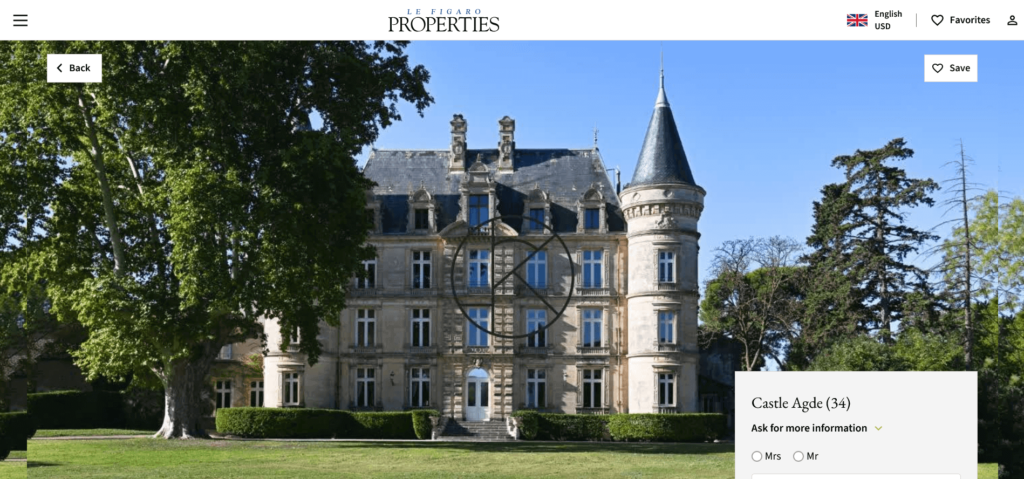
Visit website: Le Figaro Properties
If you’re particularly interested in French castles, Le Figaro Properties is a great choice. This luxury real estate website offers a wide range of properties in France, from charming chateaux to grand, historic castles.
- What makes it great? Le Figaro Properties focuses heavily on French real estate, making it one of the best places to look for castles in France. The site is well-organized and offers useful filters to search by location, price, or type of property. Many listings include detailed descriptions and professional photos.
- Countries covered: Primarily France.
- Best for: Buyers specifically interested in French castles or estates.
4. French-Property.com
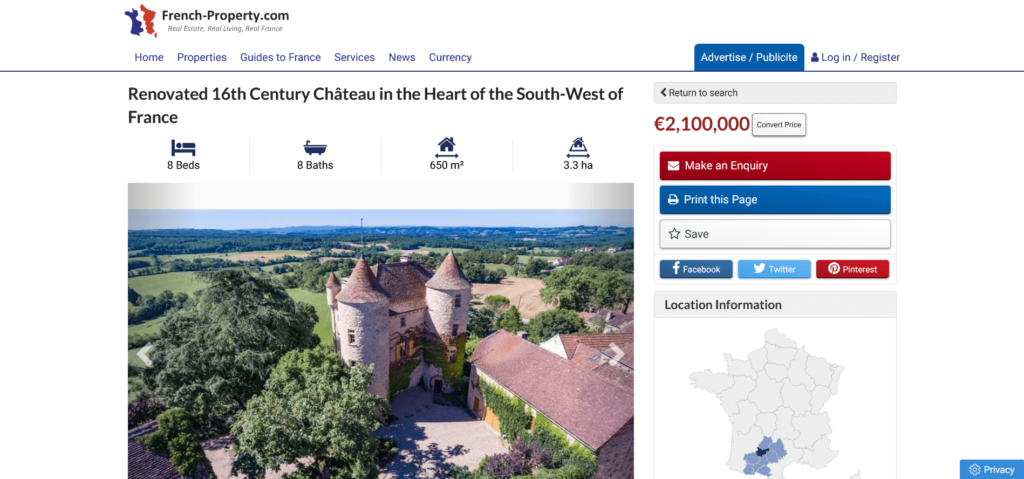
Visit website: French-Property.com
If your heart is set on France, French-Property.com is another excellent website to explore. This site specializes in all types of properties across France, including castles for sale, country estates, and luxury homes.
- What makes it great? The website is dedicated solely to French real estate, making it easy to find the perfect chateau or estate in your preferred region. You can filter your search by price, region, and property type, ensuring a smooth browsing experience.
- Countries covered: France.
- Best for: Buyers searching exclusively for castles in France.
5. Savills
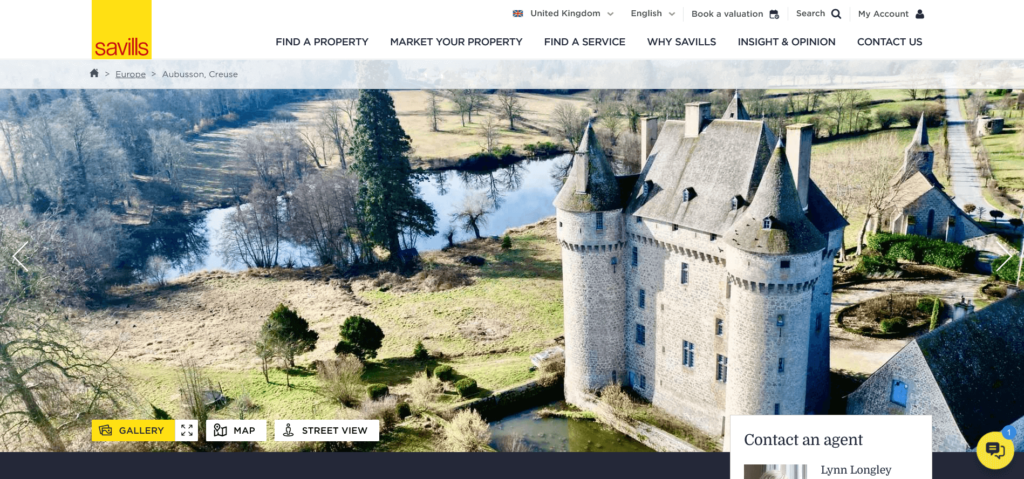
Visit website: Savills
Savills is a leading global real estate company, known for offering high-end properties, including some of the most stunning castles for sale across Europe. With over 160 years of experience, Savills is trusted for its expertise in luxury real estate and is a go-to source for those looking to buy unique, historical properties like European castles.
- What makes it great?
Savills provides an impressive range of castles for sale, with a user-friendly website that makes searching easy. Whether you’re looking for a classic French chateau, a grand English estate, or a restored Scottish fortress, Savills has it all. They offer extensive property details, high-quality photos, and expert advice, ensuring you have everything you need to make an informed decision. With offices and agents across Europe, they provide local insights and support throughout the buying process. - Countries covered: UK, France, Italy, Spain, Scotland, and more.
- Best for: Buyers looking for high-end, expertly curated historic properties with top-notch professional guidance.
6. Realportico
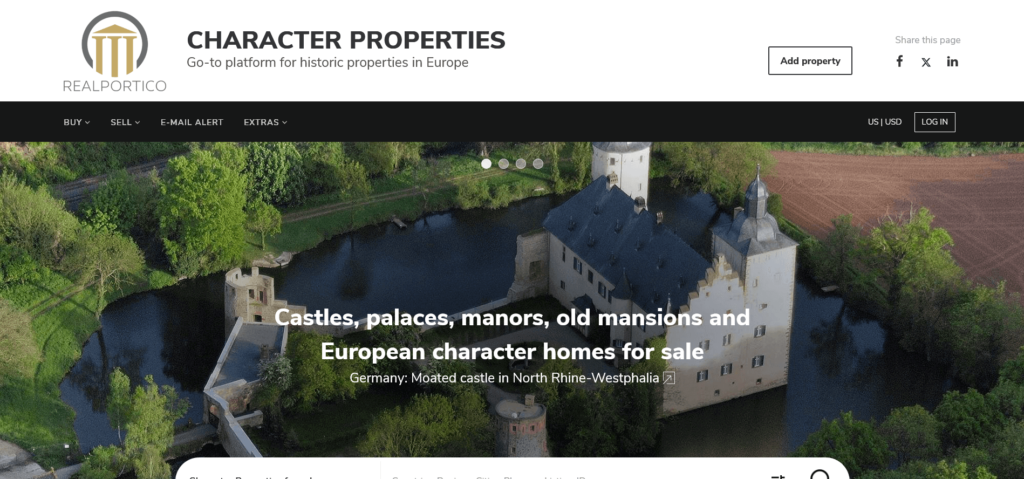
Visit website: Realportico
Realportico is a specialized platform that focuses on the sale of historic properties, including castles, chateaux, and manors across Europe. The website offers a broad range of unique and authentic estates, catering to buyers with a passion for history and heritage properties.
- What makes it great?
Realportico stands out by offering a wide selection of historic homes, including castles for sale that range from affordable renovation projects to fully restored estates. The platform is designed specifically for heritage properties, making it easier to find listings that are truly one-of-a-kind. Realportico also provides detailed descriptions and high-quality images for each property, giving buyers a clear view of what to expect. The site is simple to navigate, and it regularly updates its listings to ensure you’re seeing the most current opportunities. - Countries covered: France, Spain, Italy, Germany, Portugal, Czech Republic, and more.
- Best for: Buyers searching for historic estates, especially those interested in restoration projects or unique heritage properties.
7. Castleist
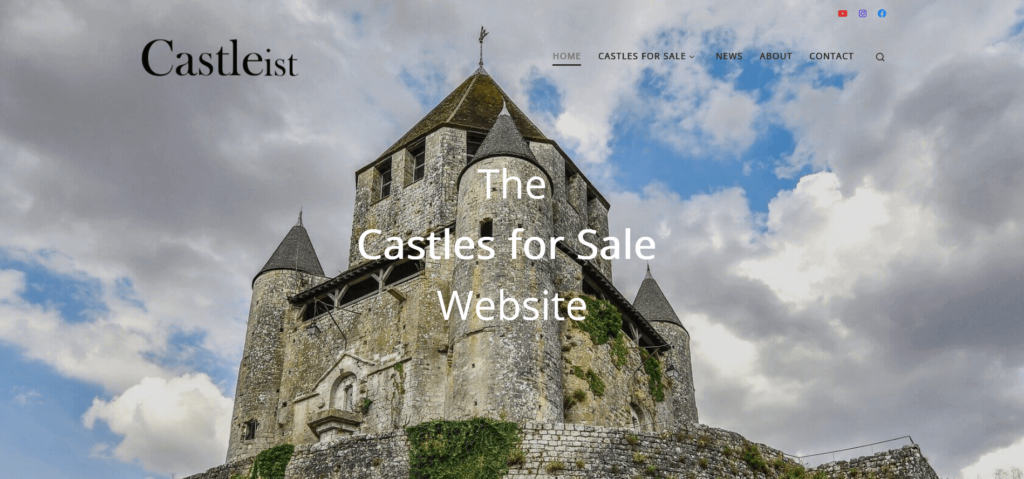
Visit website: Castleist
Castleist is a dedicated website for castles, manors, and other historic estates. It’s one of the most comprehensive platforms when it comes to buying a European castle. The site covers a broad range of properties from different countries and price points, making it accessible to both luxury buyers and those with more modest budgets.
- What makes it great? Castleist focuses solely on historic estates, and its extensive selection includes everything from affordable ruins in need of renovation to fully restored castles. It also offers interesting articles and information on castles for sale, tips on restoration, and insights into the castle-buying process.
- Countries covered: France, Italy, Spain, Germany, Portugal, Ireland, Scotland, and more.
- Best for: Buyers at various price levels, from fixer-uppers to fully restored luxury castles.
8. Prestige Property Group
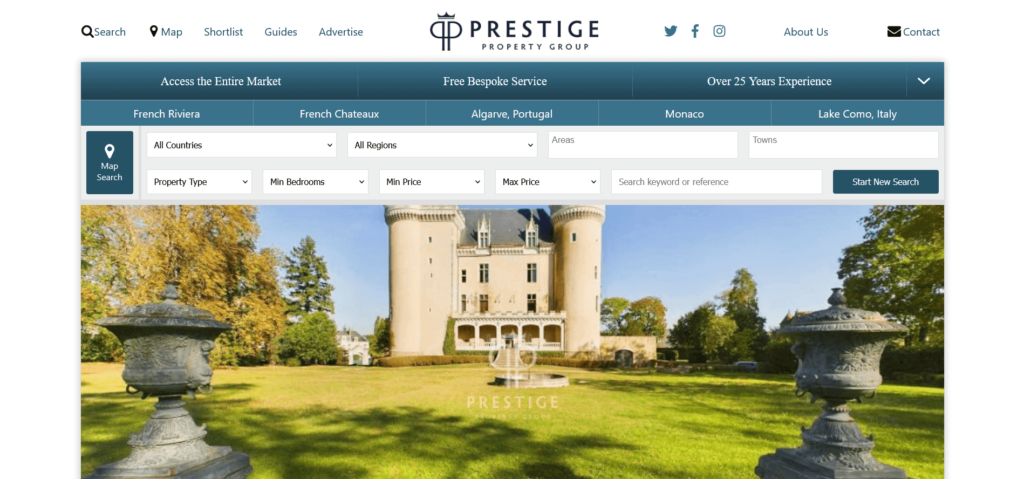
Visit website: Prestige Property Group
Prestige Property Group specializes in high-end homes across Europe, with a selection of historic estates and castles for sale. They offer luxury properties in many desirable locations, with detailed listings that include high-quality photos and property information.
- What makes it great? Prestige Property Group caters to a wide variety of tastes, offering castles that range from modernized, move-in-ready estates to those that need a little renovation. The site is user-friendly and provides useful filters so you can easily browse based on your budget or location.
- Countries covered: France, Spain, Portugal, Italy, and more.
- Best for: Buyers looking for luxury homes with a mix of modern and traditional elements.
9. Lux Residence
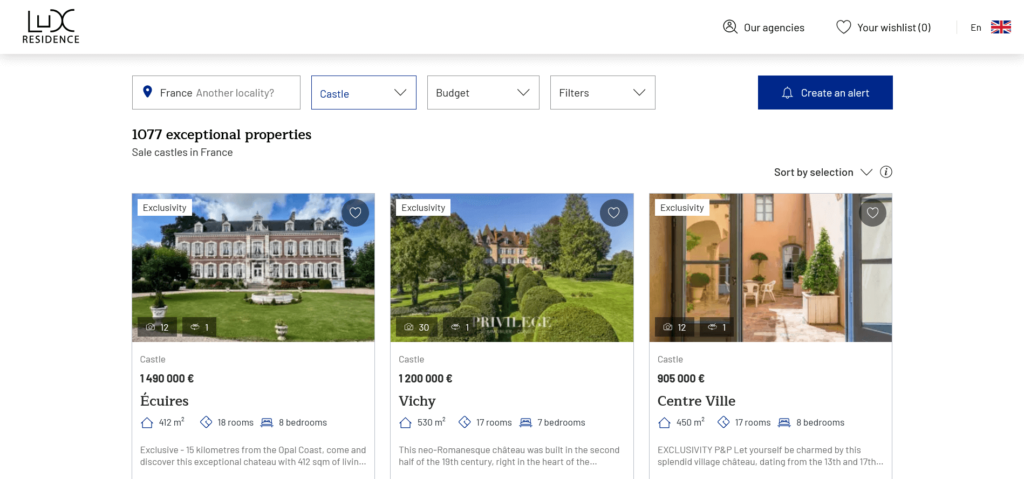
Visit website: Lux Residence
Lux Residence offers high-end properties, including some stunning chateaux and castles for sale. Their website caters to buyers seeking luxury real estate across Europe, with an emphasis on elegant, historical properties.
- What makes it great? The site offers an impressive selection of beautiful estates. The listings are detailed, with descriptions, photos, and sometimes virtual tours, which can be helpful if you want to view the property before flying out to see it in person.
- Countries covered: Primarily France, but also other parts of Europe.
- Best for: Luxury buyers looking for a fully restored, move-in-ready castle.
10. Knight Frank
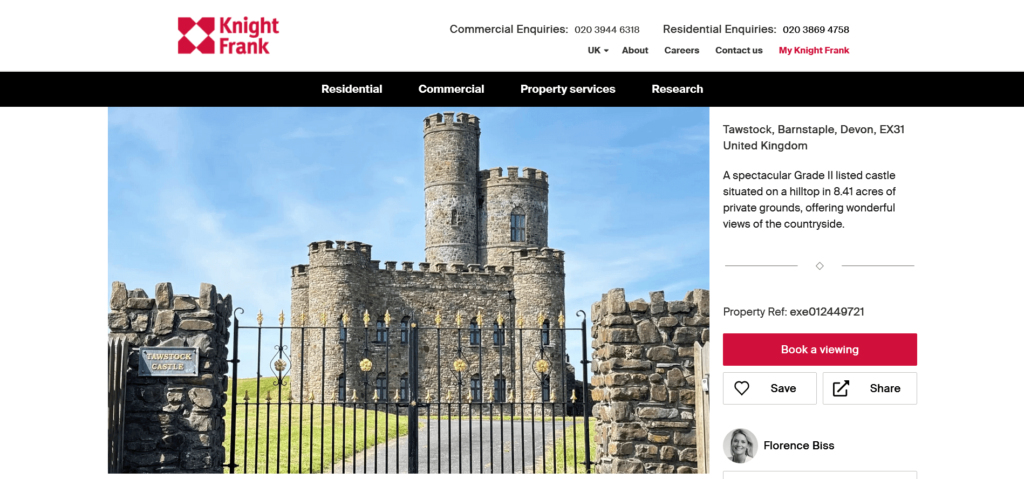
Visit website: Knight Frank
Knight Frank is another renowned real estate company that lists high-end properties worldwide. Their website features a selection of castles and historic homes in various parts of Europe, particularly in France and the UK.
- What makes it great? Knight Frank provides a trusted platform for purchasing luxury estates, and their listings are comprehensive, with plenty of detail and high-resolution images. They also offer expert advice, guiding you through the buying process of such unique properties.
- Countries covered: France, UK, Scotland, and more.
- Best for: Buyers looking for a seamless and professional castle-buying experience.
10 Common Questions and Answers About Buying European Castles
1. Can anyone buy a castle in Europe?
Yes, anyone, including foreigners, can buy a castle in Europe. However, the process varies depending on the country where the castle is located. In many European countries, like France, Italy, and Spain, there are no restrictions on foreign property ownership. In some cases, you may need to open a local bank account or meet specific residency requirements, but these are generally straightforward. You’ll likely need the help of a local lawyer to navigate the legal process, which may include checking the title deed, confirming boundaries, and understanding property taxes and fees.
2. How much does it cost to buy a castle in Europe?
Castle prices in Europe can range widely based on location, size, historical value, and condition. Smaller, less famous castles in rural areas might start at around €500,000, though some can even be cheaper. More prestigious castles, especially those near major cities or in tourist regions, can go up to €10 million or more. The real cost, however, often comes after the purchase. Restoration, renovations, and ongoing maintenance can easily double or triple the initial purchase price. On average, buyers should be prepared to spend at least 1-2% of the property’s value annually on upkeep.
3. Which countries in Europe have the most castles for sale?
France, Italy, Spain, Germany, and Scotland are some of the European countries with the most castles available for purchase.
- France: Known for its “châteaux” (French for castles), there’s a wide selection, from Renaissance-style estates to medieval fortresses.
- Italy: Offers stunning historical castles with Roman and Renaissance influence, often located in scenic countryside or hilltop locations.
- Spain: Known for its blend of Moorish and medieval castles, Spain offers many unique properties, particularly in the countryside.
- Germany: Offers large, grand castles, often with rich histories, though they tend to be more expensive.
- Scotland: Known for its rugged landscapes and storied castles, Scotland also has a variety of historic properties on the market.
Each country’s real estate market operates differently, so it’s important to work with an experienced real estate agent familiar with castle sales in the country of interest.
4. What is the upkeep cost of owning a castle?
Maintaining a castle is a significant financial commitment. These properties are often centuries old, and the cost to keep them in good shape can be quite high.
- Restoration: If the castle is in disrepair, restoration costs can be huge, sometimes reaching millions of euros. Renovations may need to be done with special materials or craftsmanship to preserve the historical integrity of the building.
- Utilities: Heating an old, large stone structure is expensive. Modernizing plumbing, electrical systems, and insulation may also be required.
- Ongoing Maintenance: Annual maintenance costs vary depending on the size and condition of the property. Basic maintenance, including roof repairs, window upkeep, and gardening, can run anywhere from €20,000 to €100,000 or more per year.
- Security: Securing a large estate might require alarm systems, caretakers, or even live-in staff. This adds additional costs.
Before buying, it’s wise to get a detailed assessment of the castle’s condition and estimate both immediate and long-term expenses.
5. Can I live full-time in a castle?
Yes, you can live full-time in a castle, but there are some factors to consider. Many castles, especially those that are hundreds of years old, were not built with modern comforts in mind. Rooms may be drafty, and you might face challenges with plumbing, heating, and electrical systems. Modernizing a castle to make it suitable for daily living can be expensive.
Some owners choose to renovate only a portion of the castle for personal use and leave the rest as it is or turn it into guest accommodations. If the castle is protected as a historic building, certain restrictions may apply to what you can change inside, but you can usually update living spaces while preserving key historical features.
6. Are castles protected as historical buildings?
Many European castles are considered protected historical monuments or landmarks. If a castle is protected, you will need to follow strict guidelines when it comes to renovations, changes, or even maintenance. This can sometimes limit what you can do with the property, especially regarding structural changes or modern upgrades. On the flip side, owning a protected castle can come with benefits. In some countries, you may qualify for tax breaks or government grants to help with restoration and upkeep. For example, in France, owners of listed monuments can receive subsidies from the government for restoration projects, though these often come with the obligation to open the property to the public for certain days.
7. Can I run a business in a castle, like a hotel or event venue?
Yes, many people who buy castles turn them into businesses. Castles are often used as hotels, bed and breakfasts, wedding venues, or event spaces. Depending on the property’s size and location, some owners also offer guided tours or open the property as a museum.
In most European countries, you can legally operate a business out of your castle, but it’s important to check local zoning laws and obtain the necessary permits. Some castles already have commercial licenses or are designed for public use, making the transition easier. Keep in mind that if the castle is protected as a historical site, you may need to follow additional regulations when making alterations to support a business.
8. How old are most castles for sale in Europe?
Most castles for sale in Europe are several hundred years old. The majority were built during the Middle Ages (roughly between the 9th and 15th centuries), while others date from the Renaissance (16th century) or even later. Some castles may have been built on the ruins of older fortresses, incorporating older architecture.
The age of a castle can affect the types of materials used in its construction and the level of maintenance it requires. Older castles may have undergone significant renovations over the centuries, making them a mix of different architectural styles. It’s important to research the specific history of the castle you’re interested in, as it can impact everything from historical significance to market value.
9. What should I check before buying a castle?
Before buying a castle, there are several key things to check:
- Structural Integrity: Ensure that the foundations, walls, and roofs are stable and in good condition. Older buildings may have hidden issues like water damage or crumbling stone.
- Renovation Costs: Determine if any major renovations are needed, especially with plumbing, electricity, and heating. Older systems often need modernizing.
- Historical Status: Check if the castle is listed as a historical monument and what restrictions that brings. You may need special permits for renovations.
- Land and Boundaries: Verify the exact size of the property, including any additional land, forests, or lakes that may come with the estate. Boundary disputes can arise, especially with older properties.
- Legal and Tax Issues: Make sure all paperwork is in order and that there are no outstanding legal issues. Check the tax obligations and whether there are any local regulations regarding property use. Hiring experts, including engineers, architects, and real estate lawyers, is crucial for a detailed assessment before making the purchase.
10. Are there tax benefits to owning a castle in Europe?
In some European countries, owning a historical property can come with tax benefits. These often apply if the castle is classified as a historical monument. For example:
- France: Owners of listed castles can deduct a percentage of their restoration costs from their taxes. Additionally, if the castle is open to the public for certain days, they may receive subsidies for its upkeep.
- Italy: There are tax deductions for the preservation and restoration of heritage properties. Some regions also offer grants to help maintain historic buildings.
- Germany: There are tax incentives for restoring historically significant buildings, and some areas offer financial assistance. These benefits often come with conditions, such as keeping part of the property accessible to the public or maintaining the historical aspects of the building. Consulting a tax advisor familiar with local property laws is important to understand the potential benefits in each country.
With these detailed insights, you’ll have a better understanding of what to expect when buying and owning a European castle!

Final Thoughts
Owning a piece of European history in the form of a castle is no longer a dream reserved for royalty or the elite. With the help of these top 10 websites, you can now explore a wide variety of castles for sale across Europe, from fully restored luxury estates to ruins that offer the opportunity for a unique restoration project. Whether you’re looking for an investment property, a vacation home, or your primary residence, there’s a castle out there waiting for you. Each of these platforms provides detailed listings, professional advice, and helpful tools to make your castle-buying journey easier.
So, take the leap, start exploring, and you could soon be the proud owner of a breathtaking European castle. Happy hunting!
We may also earn a commission from affiliate links on this page too. Thank you.
